Junior doctors' strike: Health leader calls for Acas help with talks
- Published
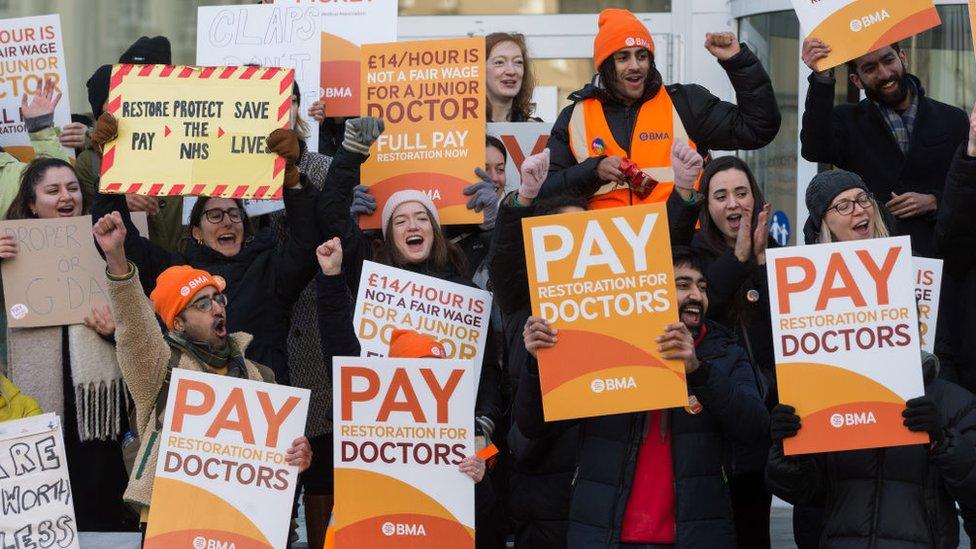
Thousands of junior doctors led by the British Medical Association will strike over four days
The government and doctors' unions must call in conciliation service Acas for talks ahead of the "extremely worrying" strikes this week, a health chief says.
Junior doctors in England will stage a four-day walkout from Tuesday - potentially the most disruptive in NHS history.
The NHS Confederation's Matthew Taylor told the BBC some 350,000 appointments and operations could be cancelled.
The strike is part of a bitter pay dispute and follows action last month.
The British Medical Association wants a 35% pay rise for junior doctors. It says the increase would make up for 15 years of below-inflation wage rises which has caused a recruitment and retention crisis.
Health Secretary Steve Barclay said on Saturday the demand was "unrealistic" and out of step with pay settlements in other parts of the public sector, but the BMA said Mr Barclay was yet to put a serious offer on the table.
The strike involving thousands of doctors is due to take place from 07:00 BST on Tuesday until 07:00 on Saturday, with walkouts across both planned and emergency care.
Speaking to the BBC, Mr Taylor, whose body represents health service trusts, said the government and unions needed to call in mediators to help advance the talks.
"It's depressing that there seems to be no movement at all from the two sides of this dispute over the last few days," Mr Taylor said.
"We should consider asking the government and the trade unions to call in Acas, the conciliation service, to provide some basis for negotiations, because if anything the positions seem to have hardened over the last couple of days."
He said an intervention from the public body was needed to avoid further strikes.
Mr Taylor also described the impact of thousands of junior doctors striking as "enormous".
"Those services are stretched and there's no question there will be a risk to patient safety, there will be a risk to patient dignity because we're unable to provide the kind of care we want."
He added: "It's an extremely worrying situation... The leaders I spoke to over the last few days are genuinely worried.
"Now to be facing this situation where those waiting lists are going to get longer, cancelling work, not being able to guarantee the level of care you want to provide - well that's heartbreaking for an NHS leader."
Recently Acas - which receives funding from the government - has been involved in mediation relating to the Royal Mail and higher education industrial disputes.
It can play an impartial role in helping to settle matters when there is a disagreement between an employer and group of employees.
On Saturday writing in the Telegraph, the health secretary wrote: "We cannot, however, negotiate until the BMA confirms it is pausing next week's strike and moving significantly from its position of 35%.
"Without this, I regrettably see no prospect of getting into serious and constructive talks."
But Dr Mike Greenhalgh, deputy co-chair of the BMA's junior doctors' committee, told the BBC over the weekend: "It's hard to negotiate when only one side is doing it and we're not getting anything back from the government on that front."
The Department of Health and Social Care (DHSC) declined to comment on the call for Acas to intervene, but said it was working with NHS England to put in place contingency plans to protect patient safety.
Miriam Deakin, director of policy and strategy at NHS Providers which represents hospital services, told the BBC health leaders were "deeply worried" about the strike's impact on patient care and safety.
She told BBC Radio 4's World At One there would be "extreme pressure on critical life-preserving services" and called for both sides of the dispute to "step back from the brink".
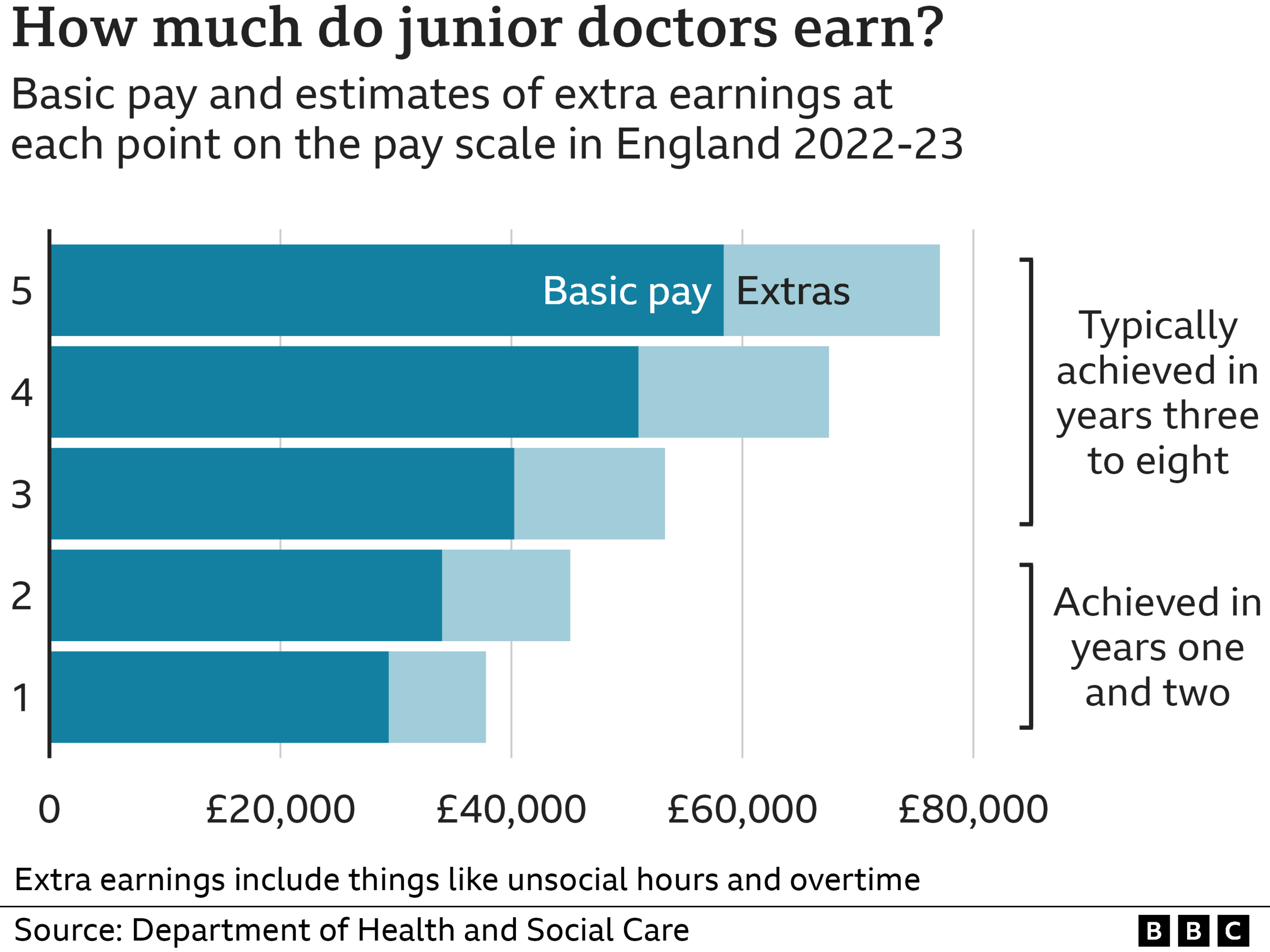
The BMA has refused to exempt any services, in contrast to nurse and ambulance unions who did agree to some exemptions in their recent strikes. But the BMA said plans were in place to pull junior doctors off the picket line if lives were in danger.
The organisation's co-chair Dr Vivek Trevedi told the BBC striking doctors would return to work in the event of a major incident, but said no formal request for an agreed list of circumstances in which the action would be paused had been submitted by the government.
Mental health, maternity and some GP services are also be expected to be impacted.
Some GP surgeries are suspending routine appointments for up to a week due to the strikes, according to the Telegraph.
A 72-hour strike by junior doctors last month led to more than 175,000 patient appointments and procedures being cancelled in England.
While emergency care was provided by consultants during the strike, many planned, non-urgent treatments were rescheduled.
Junior doctors represent nearly half of the medical workforce in England and include those who have just graduated from university, through to some with 10 years of experience.
Two-thirds of junior doctors are members of the BMA.

Are you a junior doctor with a view on the strike? Are you a patient affected? Share your experiences by emailing haveyoursay@bbc.co.uk, external.
Please include a contact number if you are willing to speak to a BBC journalist. You can also get in touch in the following ways:
WhatsApp: +44 7756 165803
Tweet: @BBC_HaveYourSay, external
Please read our terms & conditions and privacy policy
If you are reading this page and can't see the form you will need to visit the mobile version of the BBC website to submit your question or comment or you can email us at HaveYourSay@bbc.co.uk, external. Please include your name, age and location with any submission.
Related topics
- Published9 April 2023
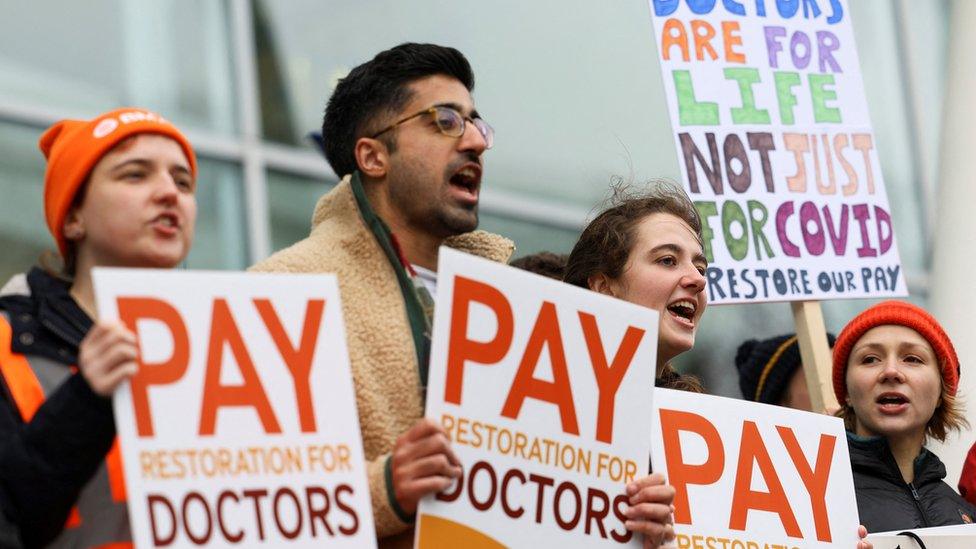
- Published8 April 2023
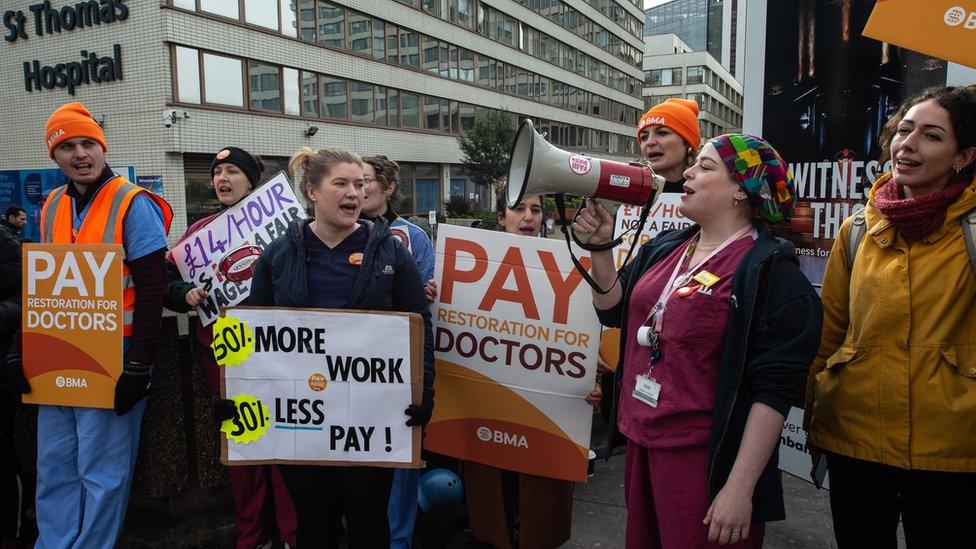
- Published6 April 2023
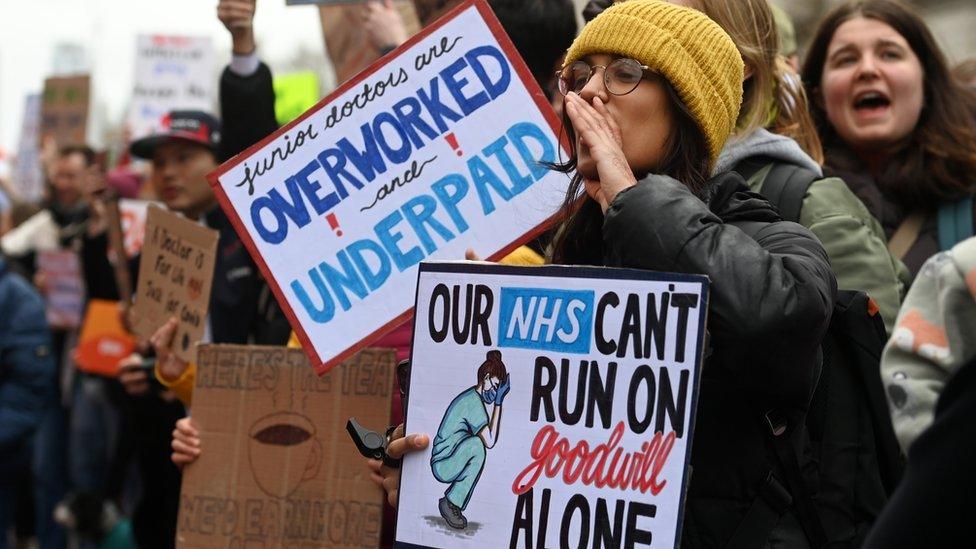
- Published18 March 2023
